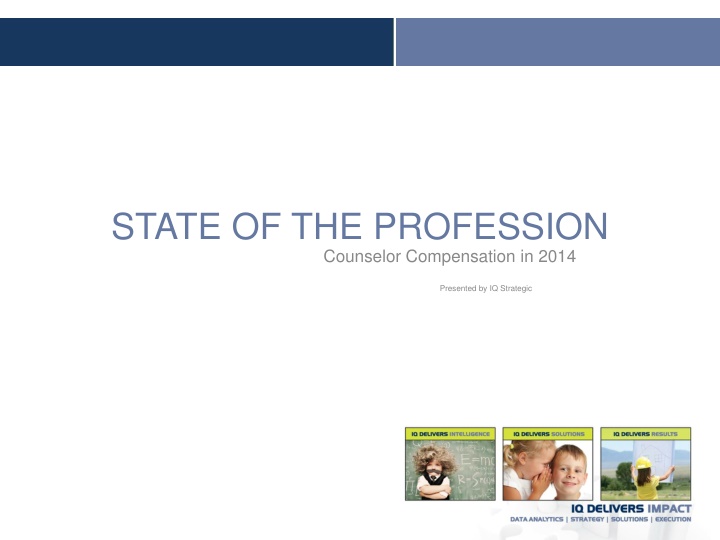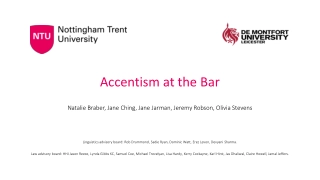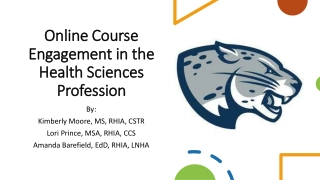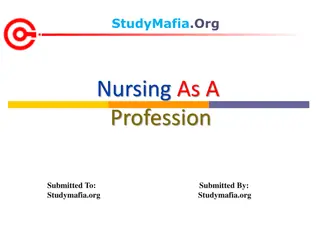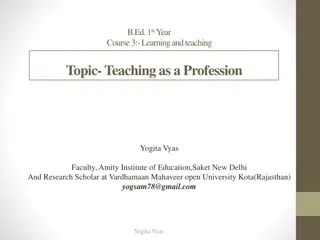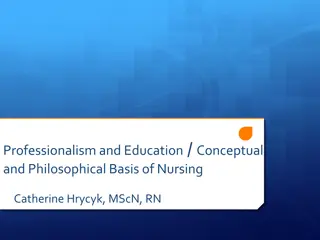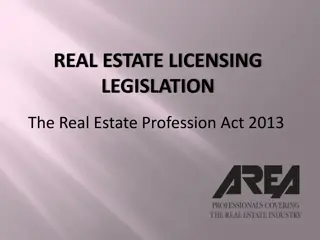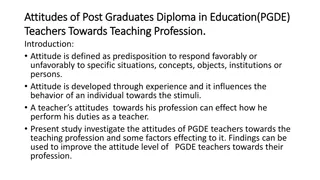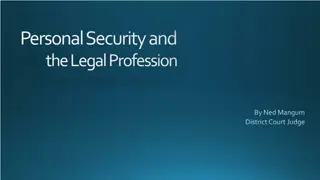STATE OF THE PROFESSION
This study delves into the intricate world of sarcasm detection on Twitter, focusing on the nuances of language where users often express the opposite of their intended meaning. Exploring the importance of detecting sarcasm, particularly in social media team operations for large companies to prevent PR blunders, the research highlights various methodologies and approaches employed in the field. From lexicon-based techniques to utilizing behavioral and psychological aspects, the study uncovers the challenges and strategies in automatically identifying sarcastic tweets. With SCUBA (Sarcasm Classification using a Behavioral Modeling Approach) at the forefront, the research aims to enhance understanding and accuracy in discerning sarcastic content within the dynamic realm of Twitter.
Download Presentation

Please find below an Image/Link to download the presentation.
The content on the website is provided AS IS for your information and personal use only. It may not be sold, licensed, or shared on other websites without obtaining consent from the author.If you encounter any issues during the download, it is possible that the publisher has removed the file from their server.
You are allowed to download the files provided on this website for personal or commercial use, subject to the condition that they are used lawfully. All files are the property of their respective owners.
The content on the website is provided AS IS for your information and personal use only. It may not be sold, licensed, or shared on other websites without obtaining consent from the author.
E N D
Presentation Transcript
STATE OF THE PROFESSION Counselor Compensation in 2014 Presented by IQ Strategic
MACRO OBJECTIVES Help Counselors Inform those in the profession Identify trends Identify areas of focus for ACA and ACA Divisions to provide more support
STUDY OBJECTIVES Define compensation and benefits typical of 4 major sub-specialties Mental Health Counselors Counselor Educators Rehabilitation Counselors School Counselors
STUDY OBJECTIVES Understand differences in compensation between specialties Understand the impact of: Geography Education Work Setting Length of Service
STUDY OBJECTIVES Understand how work schedules and secondary positions affect compensation Part Time vs Full Time 12 month vs less than 12 month schedule Multiple positions such as adjunct professors or a secondary private practice Examine Private Practitioners as a separate group
METHODOLOGY Decided on a stratified sample in order to conduct analysis by specialty Mental Health School Counselors Rehab Counselors Counselor Educators Sample Sources both inside and outside ACA membership in order to make comparisons regarding impact of membership on salary State Licensure Lists Self-identified School Counselors CRCC Membership List Database of Counselor Educators An effort was made to identify comprehensive sources in each specialty
METHODOLOGY Specialty ACA Members Margin of Error Non- Members Margin of Error Total Margin of Error Mental Health 4,169 1.5% 876 3.3% 5,045 1.4% Rehab 149 8.0% 442 4.6% 581 3.96% School 550 4.1% 1,113 2.89% 1,663 2.3% Counselor Educator 491 4.1% 85 10.4% 576 3.7% Other 875 3.7% 209 6.8% 1,084 3.0% Margin of error calculated at 95% confidence 7
CREDENTIALS Credentials Members of each specialty received a question specific to the credentials offered within that specialty. Mental Health Counselors were asked if they hold an LPC, while rehabilitation counselors and school counselors were asked about certification.
STATUS Full-Time/Part-Time Part-time work was defined as less than 25 hours per week for purposes of this study. Only 14% of counselors work part-time in their primary position. Many counselors do hold a secondary part-time position.
SECONDARY POSITIONS Secondary Positions Overall, 34% of counselors hold a secondary position outside of their primary counseling position. Counselor educators are most likely to hold a secondary position. Private Practice is the most frequently held secondary position.
COMPENSATION Other $61,074.00 School Counselors $53,299.00 $53,561.00 Rehabilitation Counselors Counselor Educators $66,406.00 Mental Health Counselors $40,442.00 Average Compensation
CONCLUSIONS The benefits offered by employers to counselors are, in many cases, much better than what is available to the typical employee in the United States. Those who stay with the profession are generally rewarded with higher earnings over time. One in three counselors pursue their passion for helping others not just through their day jobs, but through second jobs, such as private practice and adjunct teaching. Private practitioners frequently take care of all aspects of business management, meaning they need to learn business skills, such as accounting.
